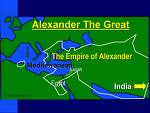As everyone knows, the first president of the United States of America was George Washington. On April 30, 1789, George Washington took his official oath of office while standing on a balcony of Federal Hall on Wall Street in New York.
He wrote to James Madison, understanding how important his swearing in was, that “As the first of everything, in our situation will serve to establish a Precedent. It is devoutly wished on my part, that these precedents may be fixed on true principles.”
After the Revolutionary War, Washington actually longed to retire to his fields at Mount Vernon. He realized, however, that a new Constitution was necessary in America and he worked tirelessly to see that it was ratified. After its ratification at the Constitutional Convention in Philadelphia in 1787, he was elected as president by a unanimous vote from the Electoral College.
The two party system developed by the end of his first term. By the end of his second term, weary of politics and feeling old, he retired. During his Farewell Address, he warned the people not to focus too much on geographical distinctions or on party lines. He also warned about long-term alliances in foreign affairs.
 Ever since humans have been organizing themselves into groups, politics has existed. Political entities, or states, have been organized for millenia, and the way borders have been defined throughout this long history made up the most rudimentary aspects of politics. The most basic systems of self-governance, then monarchy developed over a long, bloody history into today’s complex forms of political entities including democratic and communist systems of governance. In conjunction with the development of more complex systems from the basic types has been a parallel definition of a state’s borders from frontier-type boundaries to exact, permanent and definite borders that exist currently.
Ever since humans have been organizing themselves into groups, politics has existed. Political entities, or states, have been organized for millenia, and the way borders have been defined throughout this long history made up the most rudimentary aspects of politics. The most basic systems of self-governance, then monarchy developed over a long, bloody history into today’s complex forms of political entities including democratic and communist systems of governance. In conjunction with the development of more complex systems from the basic types has been a parallel definition of a state’s borders from frontier-type boundaries to exact, permanent and definite borders that exist currently.